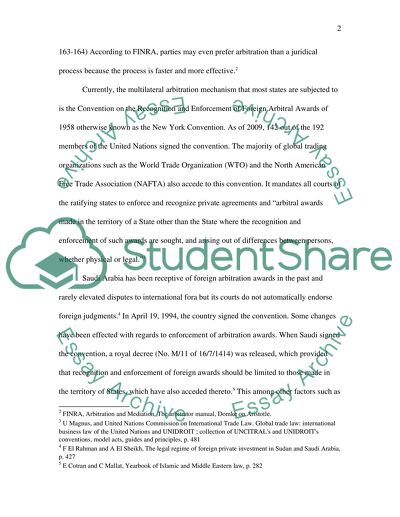Cite this document
(“Critical overview of the enforcement of foreign arbitral awards in Dissertation - 1”, n.d.)
Retrieved from https://studentshare.org/other/1424779-critical-overview-of-the-enforcement-of-foreign
Retrieved from https://studentshare.org/other/1424779-critical-overview-of-the-enforcement-of-foreign
(Critical Overview of the Enforcement of Foreign Arbitral Awards in Dissertation - 1)
https://studentshare.org/other/1424779-critical-overview-of-the-enforcement-of-foreign.
https://studentshare.org/other/1424779-critical-overview-of-the-enforcement-of-foreign.
“Critical Overview of the Enforcement of Foreign Arbitral Awards in Dissertation - 1”, n.d. https://studentshare.org/other/1424779-critical-overview-of-the-enforcement-of-foreign.


